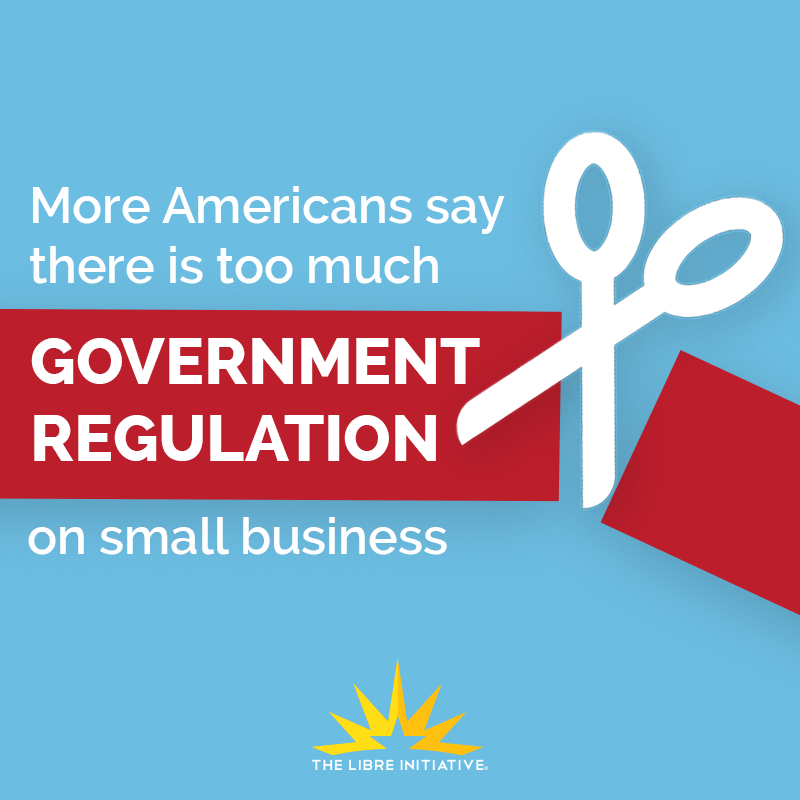Hands off my Hummus – Regulation in the News

Hands off my Hummus – Regulation in the News
Creativity. Innovation. Hard work. These concepts get to the very core of what makes the United States’ economy one of the world’s best, and Latinos continue to play an indispensable role in the country’s growth. For example, Latinos start new businesses at a rate twice the national average, and account for over 2.3 million firms, creating jobs and bringing consumers the products and services we love. We have every reason to be concerned, therefore, when big businesses seek competition-killing regulations that interfere with the way new, small businesses create, innovate, and produce. There are countless examples of big businesses pleading for more regulations – under the guise of protecting consumers – that are actually geared towards giving them an advantage over smaller competitors. With big businesses increasingly empowered by government cronyism and the cozy relationships they enjoy with regulators, the win-by-regulation phenomenon is everywhere, and now it threatens to find its way into our hummus.
Sabra – the PepsiCo-owned company that produces dips, guacamole, hummus, and salsas – recently petitioned the Food and Drug Administration (FDA) to regulate the official definition of hummus. As the market leader in hummus sales in the United States, Sabra requests that the “FDA establish a new standard of identity for hummus,” and proceeds to list exactly what that identity should be, along with what they deem acceptable spellings for ingredients (for concerned parties, hommos, houmos, and houmus are permitted).
Hummus is traditionally a combination of chickpeas, tahini, lemon juice, garlic, olive oil, and salt. Thankfully for American consumers, due to the creative, innovative, and quickly evolving nature of the food industry, different companies have begun to experiment with twists on the classic favorite. Founded in 2011, the small company (fewer than 10 employees) Eat Well Embrace Life has made a name for themselves by being different. From their website:
“Made from the finest ingredients and with the greatest attention to detail, Eat Well Embrace Life has Americanized the hummus category by creating hummus from Other Beans. What makes us different and better is our commitment to product innovation, resulting in new, exciting flavors with the Wow! taste and healthy attributes you’ve come to expect. Thanks to the groundswell of support we get from foodies like you, we’re the nation’s fastest growing hummus company today.”
But for Sabra, that anyone would dare mess with the integrity of hummus is a deeply troubling development (or so they claim). In the FDA petition it expresses the goal to “promote honesty and fair dealing in the marketplace.” Not fearful of overstating its case, the industry giant continues that this is in consumers’ best interest, and will eliminate “the potential for economic fraud and deception through the substitution or addition of ingredients that destroy the basic nature and essential characteristics of hummus.”
Is Sabra really out to protect the consumer, or are they trying to get friends in the federal government to handicap the competition? It’s not as if consumers are likely to be confused about the ingredients in Eat Well, Embrace Life products – the packaging appears to be clearly labeled. And Sabra’s goal isn’t to give consumers clearer info – or promote fairness – it’s to force a rising competitor out of the marketplace.
Digging a little deeper, it becomes clear what Sabra (and other big firms who pull the same kind of stunt) is actually aiming for: slowing down the competition. The establishment of strict definitions in these areas would provide “product uniformity” and would interfere with how competitors do business. Far from committing economic fraud, the newer, smaller competitors are simply cutting into market share by offering exciting and different products that consumers love, and the industry leader is throwing the business-world equivalent of a temper tantrum.
The case of Sabra, unfortunately, is just one of countless examples of big businesses using their influence or size to gain an advantage in the marketplace. By granting broad powers to regulatory agencies such as the FDA, it incentivizes big players to bully the little guy with regulations or other barriers to entry, and it tempts big companies to spend more time lobbying the FDA than satisfying customers. If Sabra gets its way this time, it will only further solidify just how far the culture of cronyism has become entrenched in big business. America was built on beating your competition by winning customers, not by whining to the FDA, and it seems as though Sabra and others have lost touch with what makes America thrive. The U.S. culture of free enterprise is one that Latinos have readily embraced, and it is time for big businesses and government to do the same.

